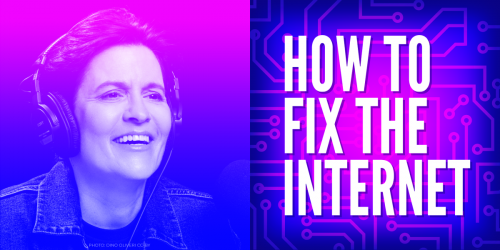We’re in the midst of a long-overdue resurgence in antitrust litigation. In the past 12 months alone, there have been three landmark rulings against Google/Alphabet (in search, advertising, and payments). Then there’s the long-running FTC v. Meta case, which went to trial last week. Plenty of people are cheering these cases on, seeing them as a victories over the tech broligarchy (who doesn’t love to see a broligarch get their comeuppance?).
But we’re cautiously cheering for another, more fundamental reason: the Big Tech antitrust cases could and should lead to enforceable changes that will foster more vibrant online expression and more meaningful user privacy protections.
Antitrust doctrine isn’t just about prices – it’s about power. The cases are nothing less than a fight over who will control the future of the internet, and what that future will look like. Will social media platforms continue to consolidate and enshittify? Or will the courts create breathing room for new ways of connecting to emerge and thrive?
Take FTC v Meta: The FTC argues that Meta’s control over Facebook, WhatsApp and Instagram – the latter two being companies Facebook acquired in order to neutralize them as competitors— gives it unfair monopoly power in personal social media, i.e. communications with friends and family. Meta disputes that, of course, but even if you take Meta at their word, there’s no denying that this case is directly concerned with online expression. If the FTC succeeds, Meta could be broken up and forced to compete. More important than competition for its own sake is what competition can deliver: openings in the canopy that allow green shoots to sprout – new systems for talking with one another and forming communities under different and more transparent moderation policies, a break from the content moderation monoculture that serves no one well (except for corporate shareholders).
These antitrust cases aren’t the sole purview of government enforcers. Private companies have also brought significant cases with real implications for user rights.
Take Epic Games v Google, in which Google insists that the court order to open up its app store to competition will lead to massive security risks. This is a common refrain from tech giants like Google, who benefit from the system of “feudal security” in which users must depend on the whims of a monopolist to guarantee their safety. Google claims that its app store security measures keep its users safe – reprising the long-discredited theory of “security through obscurity.” As the eminent cryptographer (and EFF board member) Bruce Schneier says, “Anyone, from the most clueless amateur to the best cryptographer, can create an algorithm that he himself can’t break.”
It’s true that Google often does a good job securing its users against external threats, but Google does a much worse job securing users against Google itself – for example, there’s no way to comprehensively block tracking for Google’s apps on Android. Competition might make Google clean up its act here, but only if they start worrying that there’s a chance you’ll switch to an upstart with a better privacy posture. Enabling competition—as these cases are trying to do—means we don’t have to rely on Google to get privacy religion. We can just switch to an independently vetted rival. Of course, you can only vote with your feet if you have somewhere else to go.












